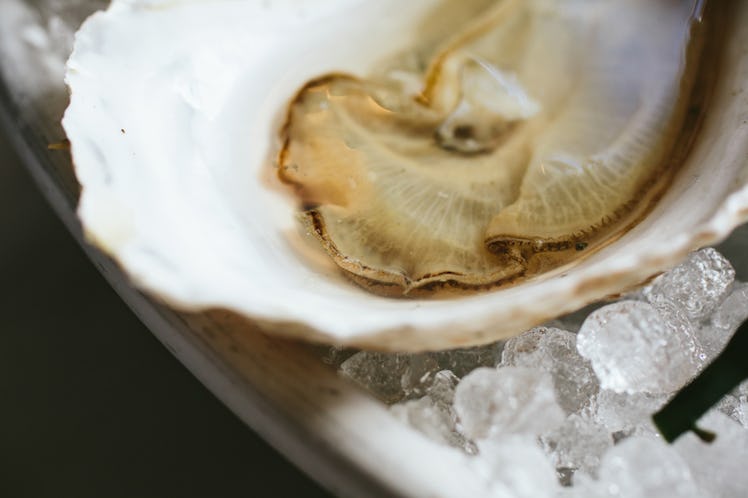
Here's The Real Deal About Whether Aphrodisiacs Really Work, According To Science
Keeping your sex life spicy can take some serious work. You might purchase a toy or two, buy a Kama Sutra book, or you might even do some investigation to find out if aphrodisiacs really work by ordering a plate of oysters for two. Aphrodisiacs have been around for centuries as a sexual stimulant, but do they really do anything, or is it just a placebo effect?
Apparently, this question has been debated for a while, and figuring out the exact answer been plaguing people for quite a long time. In case you didn't know, aphrodisiacs have been around for literal centuries. According to Vogue, countless cultures have used aphrodisiacs as a form of, shall we say, sexual pre-game, and of course, these foods have continued to be pretty relevant in modern times. But most scientific evidence suggests that the effectiveness of some aphrodisiacs is more likely to be the result of a placebo-effect phenomenon, rather than a chemical reaction, while other aphrodisiacs might actually work.
First, let's break down what an aphrodisiac really is. Traditionally, an aphrodisiac is considered to be anything edible that boosts sexual arousal via a lift of yours or your partner's libido. The idea is simple, and it kind of makes sense: Since your libido is run by hormones, it's possible that certain foods could affect those hormones, thus increasing your libido and piquing your interest in getting between the sheets with your partner.
Oysters and chocolate are two of the most commonly referenced aphrodisiacs, but they might not be the most effective, according to Good Housekeeping.
CNBC reports that, historically, people believed that oysters might be an aphrodisiac due to their high zinc content, since zinc is responsible for testosterone production, while chocolate has been called an aphrodisiac due to its scientifically proven ability to boost your mood. Happy people are horny people, right?
Well, not necessarily. Neither oysters nor chocolate have any proven efficacy in specifically increasing libido levels for men or women, according to CNBC. But hey, that doesn't mean you can't use them for the placebo effect! Creating a romantic atmosphere and slurping down some oysters might just get you in the mood all on its own, assuming you and your partner are into it.
Don't feel disheartened just yet, though. There are some pretty legit aphrodisiacs to be found at your local grocery store. For instance, Healthline reports that ginseng root may help with erectile dysfunction, while the vegetable root maca, according to a 2008 study, could help postmenopausal women feel more sexually satisfied in the bedroom. Grinding or shedding up a little ginseng or maca root to put into your meal might be your best strategy — or you can eat them whole, if you're into it! Whatever works for you.
The list of foods that many people claim to be aphrodisiacs is a long one, but it's wise to be a little skeptical about most of them.
Honey, nutmeg, and bananas, for example, have all been called aphrodisiacs, but there doesn't appear to be a lot of reliable scientific evidence to back up any of these, according to TIME.
Instead of trying to eat your way into a funky mood, you might want to try smelling instead. Aphrodisiacs may be iffy, but research has shown that the scents of lavender and pumpkin pie can increase blood flow to the penis by up to 40 percent. Unfortunately, there doesn't appear to be much scientific research out there about what smells specifically work best for women (ugh), but here's to hoping we see some breakthroughs on that front in the near future.
Of course, it's important to remember that aphrodisiacs are not a one-size-fits-all kind of thing.
Everyone varies in what turns them on and what doesn't, and that's always going to be influenced, to some degree, by personal experiences and intimate desires. If you have a terrible memory associated with lavender, for example, or if you're allergic to ginseng root, it's not likely you're going to get all hot and bothered from a sniff or a slurp.
A healthy sex life is all about honesty and communication. Talk to your partner about what you like to eat, what you find erotic, and then you can work to create the perfect environment to get naked. And when all else fails, few people in this world will say no to a box of chocolates, regardless of whether sex is involved.